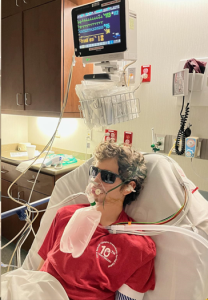A Time for Peace; a Time for War.
"Can Medical Justice solve my problem?" Click here to review recent consultations...
- Former employee stole patient list. Now a competitor…
- Patient suing doctor in small claims court…
- Just received board complaint…
- Allegations of sexual harassment by employee…
- Patient filed police complaint doctor inappropriately touched her…
- DEA showed up to my office…
- Patient “extorting” me. “Pay me or I’ll slam you online.”
- My carrier wants me to settle. My case is fully defensible…
- My patient is demanding an unwarranted refund…
- How do I safely terminate doctor-patient relationship?
- How to avoid reporting to Data Bank…
- I want my day in court. But don’t want to risk my nest egg…
- Hospital wants to fire me…
- Sham peer review inappropriately limiting privileges…
- Can I safely use stem cells in my practice?
- Patient’s results are not what was expected…
- Just received request for medical records from an attorney…
- Just received notice of intent to sue…
- Just received summons for meritless case…
- Safely responding to negative online reviews…
We challenge you to supply us with a medico-legal obstacle we haven’t seen before. Know you are in good hands. Schedule your consultation below – or click here to visit our booking page.
Like other humans, doctors are exposed to conflicts. Many conflicts need a resolution. If there is no forthcoming resolution and the stakes are high, litigation may be the next reasonable outcome; indeed, the only next potential outcome – to resolve the conflict.
Von Clausewitz, the Prussian general and military strategist, once said, “War is the continuation of policy with other means.”
Litigation can be like war.
Like war, litigation can be time-consuming, capricious, and expensive.
By capricious, I mean that with discovery, new facts are uncovered. Some may be helpful to your case. Some may hurt your case.
There’s an old adage attributed to Helmuth von Moltke, “No plan survives first contact with the enemy.”
Mike Tyson, the philosopher-boxer once updated this statement to modern times and said, “Everybody has a plan until they get punched in the face.”
I’ve heard so many physicians say, “It’s not about the money, it’s the principle.” This is the doctor’s verbal retort. What I’m hearing can be spelled either “principle” or “principal.” Maybe subconsciously what the doctor is saying is, “It’s not about the money, it’s actually about the money.”
Next, remember what you are fighting over. Litigation can inflame emotions. Is the fight over something that matters – or a power play?
Remember the Falklands War. Argentine author Jorge Luis Borges had his interpretation: “The Falklands thing was a fight between two bald men over a comb.” One journalist added, “The British still want the comb if only to hand it over nicely.”
The Falklands War (Spanish: Guerra de las Malvinas) was a ten-week undeclared war between Argentina and the United Kingdom in 1982 over two British-dependent territories in the South Atlantic: the Falkland Islands and its territorial dependency, South Georgia and the South Sandwich Islands. The conflict began on 2 April, when Argentina invaded and occupied the Falkland Islands, followed by the invasion of South Georgia the next day. On 5 April, the British government dispatched a naval task force to engage the Argentine Navy and Air Force before making an amphibious assault on the islands. The conflict lasted 74 days and ended with an Argentine surrender on 14 June, returning the islands to British control. In total, 649 Argentine military personnel, 255 British military personnel, and three Falkland Islanders were killed during the hostilities.
The population of the Falkland Islands today is 3,794. That said, there are about half a million sheep there.
If you are a defendant, there may be collateral damage. Based on the nature of the dispute, what is picked up in discovery, and the outcome, there may be action on your medical license, hospital privileges, Board certification, in-network status with insurance carriers, and professional liability insurance rates. It may even cost you more to get a loan. Lots of moving parts.
Are there alternatives? Sometimes not. Sometimes yes.
You could just walk away and cut your potential losses.
You could negotiate an agreement, the terms of which define a “truce.” With a lawyer or without. Some agreements are advertised as win-win. The protagonists don’t often share that view. Perhaps the correct “market-based” solution is where each side feels equally screwed.
You can engage in alternative dispute resolution, such as non-binding mediation. Or binding arbitration.
So, first decide what the stakes are. Exhaust diplomatic means. If that fails, and litigation is the next option, understand what you are getting into, so you make an informed decision.
What do you think?
"Can Medical Justice solve my problem?" Click here to review recent consultations...
- Former employee stole patient list. Now a competitor…
- Patient suing doctor in small claims court…
- Just received board complaint…
- Allegations of sexual harassment by employee…
- Patient filed police complaint doctor inappropriately touched her…
- DEA showed up to my office…
- Patient “extorting” me. “Pay me or I’ll slam you online.”
- My carrier wants me to settle. My case is fully defensible…
- My patient is demanding an unwarranted refund…
- How do I safely terminate doctor-patient relationship?
- How to avoid reporting to Data Bank…
- I want my day in court. But don’t want to risk my nest egg…
- Hospital wants to fire me…
- Sham peer review inappropriately limiting privileges…
- Can I safely use stem cells in my practice?
- Patient’s results are not what was expected…
- Just received request for medical records from an attorney…
- Just received notice of intent to sue…
- Just received summons for meritless case…
- Safely responding to negative online reviews…
We challenge you to supply us with a medico-legal obstacle we haven’t seen before. Know you are in good hands. Schedule your consultation below – or click here to visit our booking page.
Jeffrey Segal, MD, JD
Chief Executive Officer and Founder
Dr. Jeffrey Segal, Chief Executive Officer and Founder of Medical Justice, is a board-certified neurosurgeon. Dr. Segal is a Fellow of the American College of Surgeons; the American College of Legal Medicine; and the American Association of Neurological Surgeons. He is also a member of the North American Spine Society. In the process of conceiving, funding, developing, and growing Medical Justice, Dr. Segal has established himself as one of the country’s leading authorities on medical malpractice issues, counterclaims, and internet-based assaults on reputation.
Dr. Segal was a practicing neurosurgeon for approximately ten years, during which time he also played an active role as a participant on various state-sanctioned medical review panels designed to decrease the incidence of meritless medical malpractice cases.
Dr. Segal holds a M.D. from Baylor College of Medicine, where he also completed a neurosurgical residency. Dr. Segal served as a Spinal Surgery Fellow at The University of South Florida Medical School. He is a member of Phi Beta Kappa as well as the AOA Medical Honor Society. Dr. Segal received his B.A. from the University of Texas and graduated with a J.D. from Concord Law School with highest honors.
In 2000, he co-founded and served as CEO of DarPharma, Inc, a biotechnology company in Chapel Hill, NC, focused on the discovery and development of first-of-class pharmaceuticals for neuropsychiatric disorders.
Dr. Segal is also a partner at Byrd Adatto, a national business and health care law firm. Byrd Adatto was selected as a Best Law Firm in the 2023 edition of the “Best Law Firms” list by U.S. News – Best Lawyers. With over 50 combined years of experience in serving doctors, dentists, and other providers, Byrd Adatto has a national pedigree to address most legal issues that arise in the business and practice of medicine.



